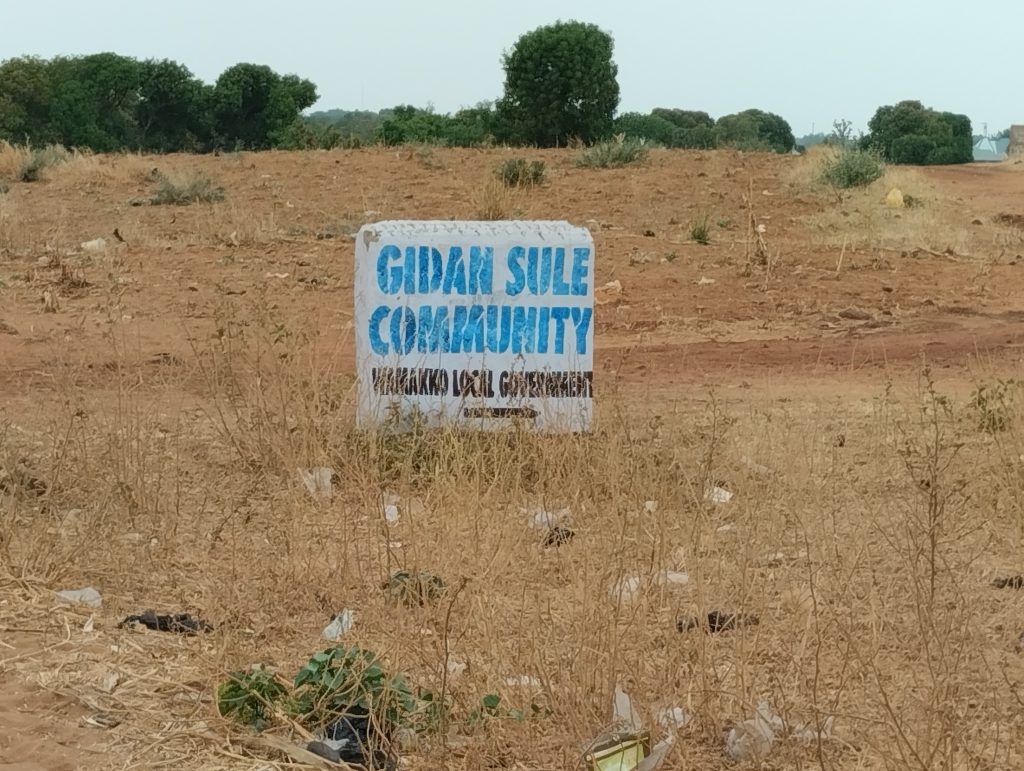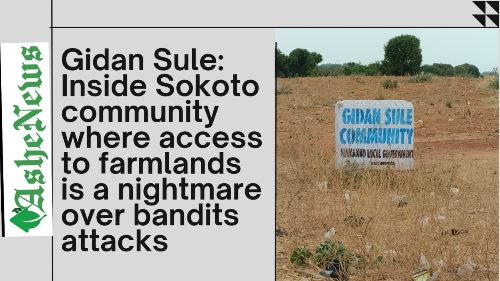The Gidan Sule community is small but mighty. The area is blessed with good farmland. However, due to the frequent bandit attacks in the area, farmers now dread going to their farms for fear of being kidnapped or killed.
The lingering insecurity in various parts of Nigeria has significantly affected lives and the economy.
Formerly renowned for its agricultural exploits, the raging attacks on farmers by bandits and others have reduced the country’s agricultural output. In recent years, the country’s local production no longer satisfies the food demand of its population of over 200 million.
The country’s ungoverned spaces provide wide corridors for the armed groups to operate without fear. Some communities have even resorted to paying ‘protection money’ to non-state actors to spare them from the attacks and grant them unfettered access to their farmlands.
In the northwestern part of Nigeria, insecurity is a chronic issue that affects farming activities. From kidnapping for ransom to cattle rustling, non-state actors operate freely in the region with minimal restriction by security operatives.
Sokoto is one of the region’s worst-hit states and is among the country’s hotbeds of insecurity. In Gidan Sule, a community in the Wamakko local government area of the state, residents grapple with incessant attacks that, according to locals, have crippled economic activities in the area.

A resident of the community, who craved anonymity due to security reasons, told ASHENEWS that the community has been under attack for the past year.
According to him, the most recent one, which was tagged ‘Black Friday’, happened on November 24, 2023, when bandits stormed the village and shot sporadically, leaving one dead and three injured in the process.
The incident, he said, has created fear in the hearts of local farmers who rely on farming to survive and earn their living.
“Many farmers who practice the wet season are desperate to go to their farms, but they cannot due to insecurity. That is why we need the government to address the menace,” he said.
A report shows that 128 farmers have so far been killed between January and June this year as the nation continues to contend with insecurity.
Data from the Nigerian Security Tracker, a project of the Council on Foreign Relations, and news reports also show that at least 37 farmers were also kidnapped within the period under review.
It was also reported that villagers even pay levies to bandits before harvesting crops in some northern states.
The abductions and killings of farmers are happening despite the warning from the United Nations Children’s Fund (UNICEF) that 25 million Nigerians are at high risk of food insecurity in 2023.
Some farmers in the area lament that their yields are also rotting away on their farms, as they cannot go there to harvest them.
Anas Mustafa, a resident of Gidan Sule Community, described the attacks on their community as unfortunate. He said there is a need for urgent action to safeguard the lives and properties of their host community.
“I was charging my phone when I heard gunshots, and I tried to identify where the gunshot was coming from; unfortunately, before then, they arrived and took away properties worth thousands of Naira from my shop.
“This is not the first time we have experienced such an attack. It has been a tradition, and we hope to see government efforts in saving our lives.”
Observers fear that if the targeted attacks on villages continue, they may worsen and crumble farming and businesses in the community because many farmers would look for safer endeavours.
A public affairs analyst, Professor Bello Bada of Usmanu Danfodiyo University Sokoto, told ASHENEWS that the attacks on farmers could lead to food insecurity, which could also affect any developed nation physically and economically.
“Some of the major factors identified as contributing to food insecurity in Nigeria include poverty, climate change, conflict and insecurity, increasing population, poor policy implementation, inefficient agricultural practices, and low budgetary allocation to agriculture, among others.
“Apart from poverty, harsh weather patterns, droughts, extreme temperatures, and floods also impact agricultural productivity and food production not only in Nigeria but also globally.”
Data from the National Bureau of Statistics (NBS) shows that Sokoto State was among the top five poorest states in 2022. According to the report, the North accounted for 65% of poor Nigerians (86 million), while the South accounted for nearly 35% (47 million).
Bello added that “it is so clear that as long as there’s no security, there’s no food for the nation, because most of the food production we have in northern Nigeria is produced in these villages; those in cities are only there to consume, and these villages are in terrible situations concerning insecurity.
“Also, this issue cannot be addressed if people don’t shun giving information about their people or village to the bandits. The people get attacked because of the material motivation that informants look out for. They are the most dangerous and key to any evil act, particularly abduction.
“However, anybody can see that in the next few months, Nigeria, and northern Nigeria in particular, will be short of food supplies because farmers are being attacked and killed. Access to their farms will be a nightmare, hence the need for the government to put in more efforts to restore lasting peace in the state and the country at large.
“There is a need for leaders of all sectors to come together and find a lasting solution to the menace,” Bada concluded.
Like Gidan Sule, the recent spate of abductions in the region may force many farmers to make similar decisions about abandoning farming.



